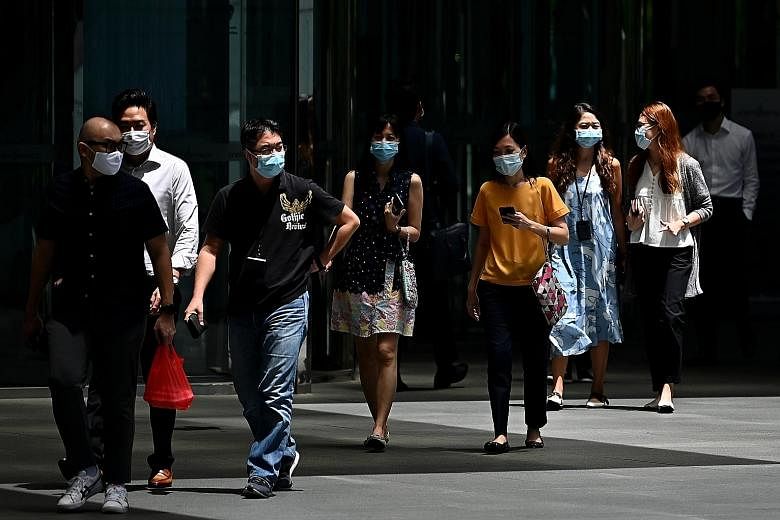Lower-wage workers have been hit particularly hard by the fallout of Covid-19 pandemic.
Those not in professional, manager, executive and technician (PMET) jobs made up 49.2 per cent of locals who were retrenched in the second quarter of the year, according to the latest data released by the Ministry of Manpower (MOM) yesterday in its labour market report.
This was up from 36.1 per cent in the first quarter.
Non-PMETs made up 41.7 per cent of all locals - referring to Singaporeans and permanent residents - in jobs last year, while PMETs made up 58.3 per cent.
The situation is a marked change from the trend before Covid-19, which saw PMETs making up a disproportionately large share of locals who were retrenched. For instance, in the fourth quarter of last year, 73.8 per cent of retrenched locals were in PMET jobs.
The proportion of younger workers aged below 40 among retrenched locals also grew to 35.3 per cent in the second quarter, up from 27.3 per cent in the previous quarter.
DBS Bank senior economist Irvin Seah said the impact on non-PMETs could be because front-line workers have been badly affected by the crisis.
"Retrenchments have now tipped against lower-skilled workers," he said.
"The nature of the pandemic has been to hit front-line jobs significantly more, which are also the ones that command lower compensation."
Mr Seah said this is in line with the bank's findings in a recent report, which said that lower-income workers - those who earn less than $3,000 per month - make up almost half of customers who have experienced a fall in salaries. Within this group, 51 per cent saw their incomes fall by more than half.
Maybank Kim Eng senior economist Chua Hak Bin also noted that gig workers - many of whom were badly affected by the circuit breaker restrictions and ongoing border controls and social distancing rules - probably account for a fair share of non-PMETs and younger people.

"Extending the Self-Employed Person Income Relief Scheme, albeit in a tapered and targeted form, will help cushion the gig workers in this recession," he said.
Mr Seah added that when it comes to younger people, employers may now be considering factors such as a lack of experience, besides compensation packages.
The labour market report yesterday also showed that retrenchments and unemployment rose in the second quarter.
A total of 78,800 citizens and 10,900 PRs were unemployed as of June. Most of them had joined the pool of unemployed recently.
Meanwhile, the number of long-term unemployed locals dipped between March and June. This refers to unemployed people who were out of work for at least 25 weeks.
But it is becoming harder for retrenched people to find new jobs quickly. The share of locals retrenched in the fourth quarter of last year who found a new job within six months fell to an all-time low of 58.4 per cent in the second quarter.
The share was lower among PMETs than among non-PMETs.
Time-related underemployment rose among locals, as there were more part-timers who were willing and available to work additional hours, said MOM in the report.
Also, as a result of less overtime work, the average weekly total paid hours worked per employee fell by one hour between March and June to 43.4 hours, the largest quarterly decline on record.
MOM said it will start to release unemployment rates on a monthly basis, instead of quarterly. This way, it can detect shifts in the employment situation more quickly. It had started collecting unemployment data monthly since April.
The data will be available online and in jobs situation reports.


